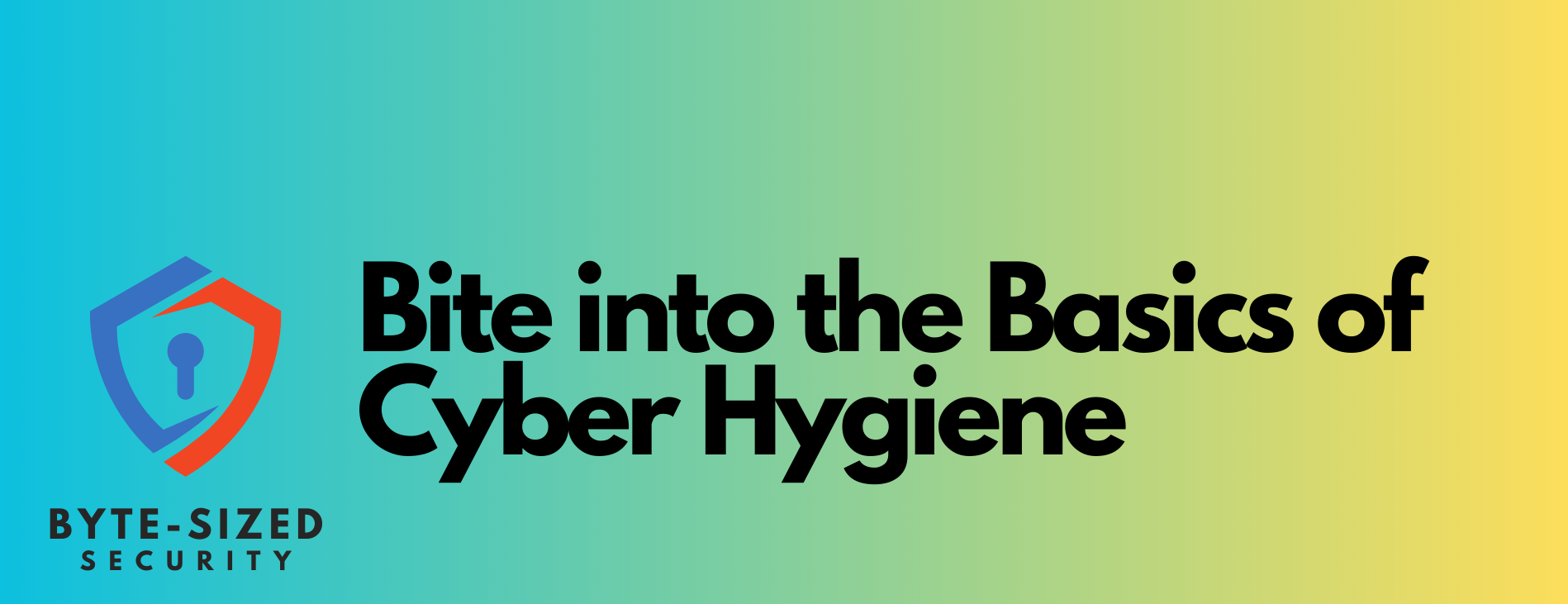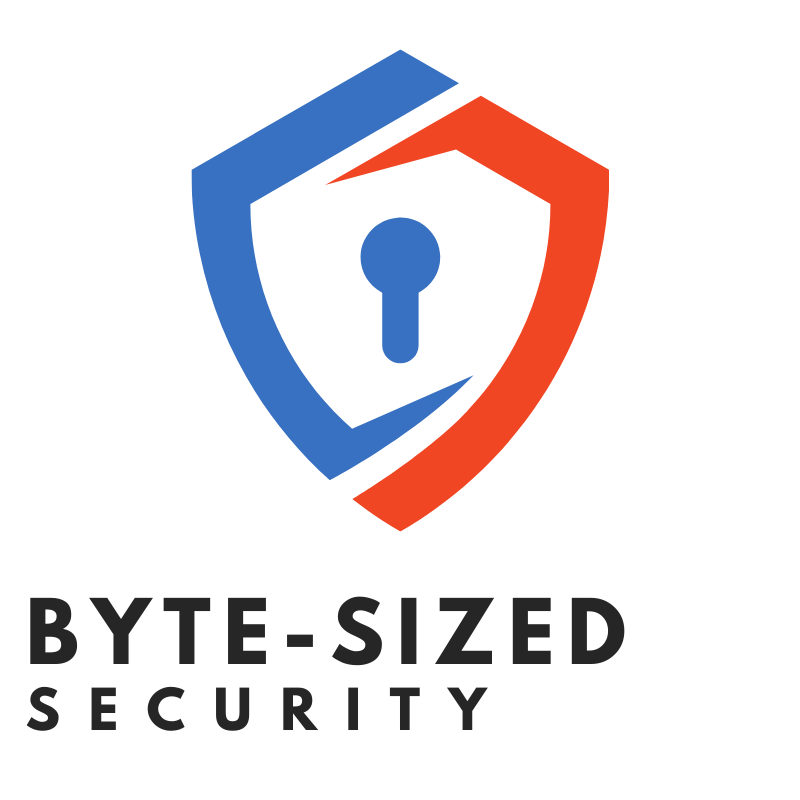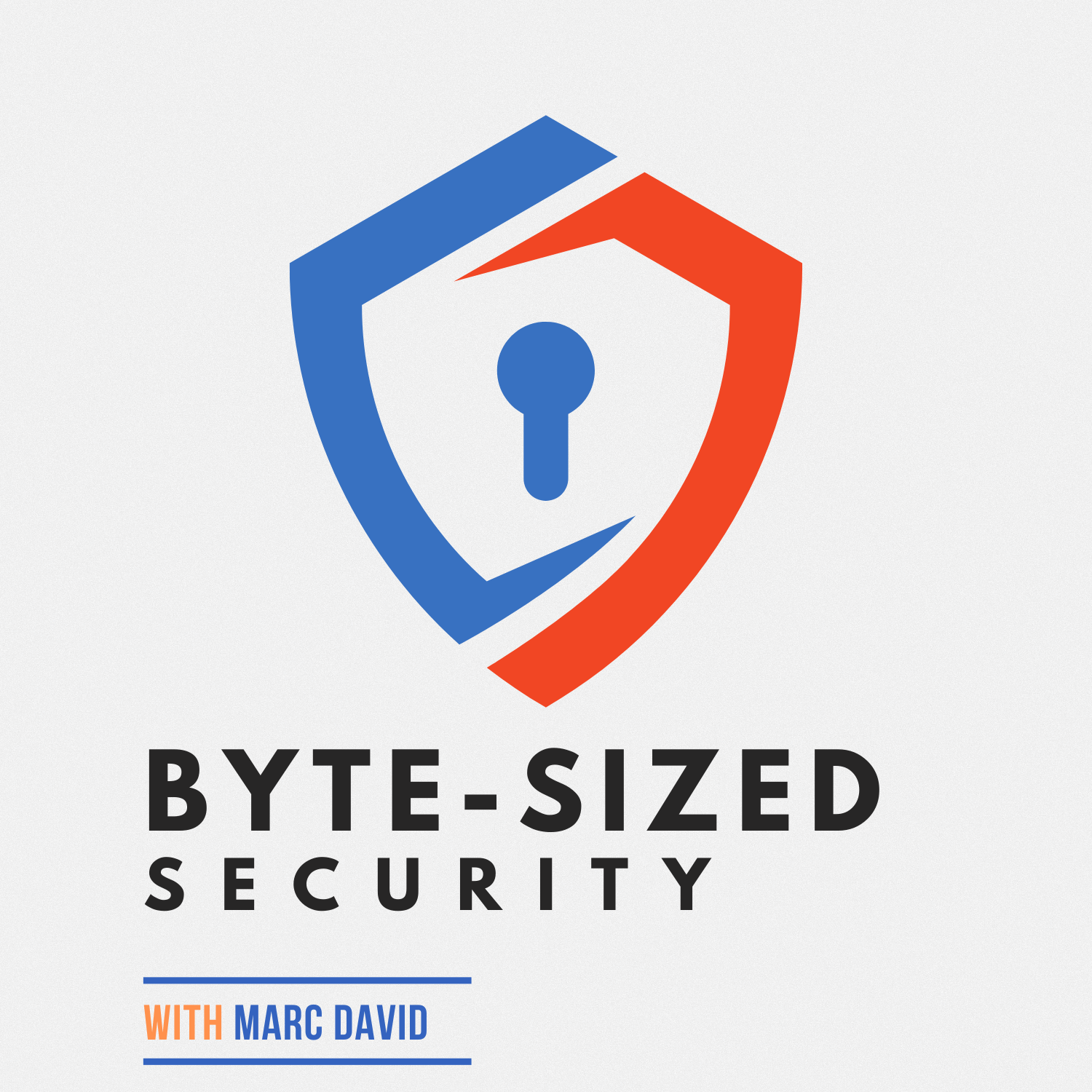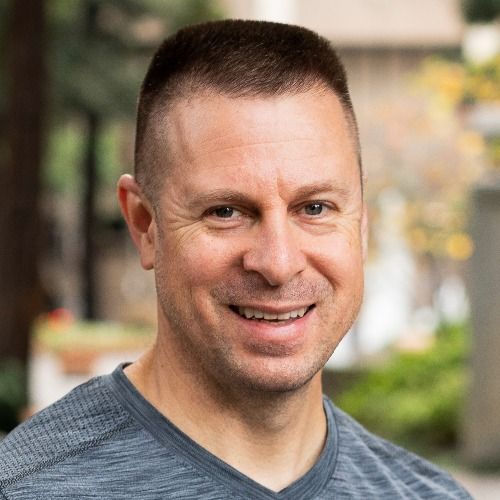EP25: The Impact of the 23andMe Breach: Protecting Personal Information Online
The recent breach of the 23andMe service, a DNA ancestry testing company. It highlights the impact of the breach, the potential risks of sharing personal information, and the lack of adequate security measures taken by the company. It also suggests various security practices that could have been implemented to prevent such breaches in the future. Finally, it mentions the importance of individual users taking steps to protect their own security and the recommendation to freeze credit to prevent identity theft.
---
I do hope you enjoyed this episode of the podcast. Here's some helpful resources including any sites that were mentioned in this episode.
--
--
Find subscriber links on my site, add to your podcast player, or listen on the web players on my site:
--
Support this Podcast with a Tip:
--
If you have questions for the show, feedback or topics you want covered. Please send a short email to marc@bytesizedsecurity.show with the Subject line of "Byte-Sized Security" so I know it's about the podcast.
Connect with me on TikTok: https://www.tiktok.com/@bytesizedsecurity
Transcript
So by now.
2
:You know that 23 and me.
3
:Was breached.
4
:And 23 and me is basically one of those
who am I related to ancestry type.
5
:Services.
6
:And it got breached because.
7
:There were somewhat like 14,000.
8
:People or accounts.
9
:That had reused passwords.
10
:And.
11
:Whoever, whatever logged into those.
12
:And then was able to use this DNA
family tree, something or other sharing.
13
:And scrape a bunch of data
from, I don't know, 6.9 million
14
:accounts, which is kind of a lot.
15
:But you do have to wonder, like, I
understand that you log into these sites
16
:and you've got to give away all this
PII, personally identifiable information.
17
:I get that.
18
:First of all, I don't know why you're
giving away to just check that out,
19
:but I understand people do that.
20
:Whatever.
21
:But you're giving it away
to a private company.
22
:And then they get breached
and all this data.
23
:I get scraped now.
24
:I don't think that whoever, whatever
did this is getting actual DNA.
25
:That's not what it is.
26
:You weren't giving DNA samples,
but you are giving away a lot of
27
:information about who we related to.
28
:Things like that.
29
:That can be used later for really
good social engineering tactics.
30
:And that's going to make.
31
:That's going to make a huge difference.
32
:And I don't know what the
ramifications of that are.
33
:But the thing that's a little
bit disheartening is twofold.
34
:One.
35
:Quite a lot of cyber security community.
36
:At least the pulse I got was well.
37
:You know, basically it is the user's
fault because they're reusing passwords
38
:and they shouldn't be doing that.
39
:And.
40
:Uh, while I agree that you should
not be reasoning passwords.
41
:I completely disagree that
it's on the users to do that.
42
:We're talking about.
43
:P I.
44
:And information.
45
:This is not just some
news site or whatever.
46
:This company had an
obligation to do something.
47
:And what they're falling back on is the
definition of reasonable security, which
48
:there really is no definition for that.
49
:Right.
50
:You could argue that, Hey, reasonable
security is username password.
51
:Okay.
52
:But there are so many
things they could have done.
53
:From the start that they did
afterwards after the breach.
54
:And this is about 10 things
and I got these 10 things from
55
:chat GPT, my $20 subscription.
56
:But I'm sure that they paid a lot of
money not to do any of these things
57
:or be told that they should do these
and then said, okay, we'll do it.
58
:And then never did.
59
:One mandatory, mandatory,
two factor authentication.
60
:They could have done mandatory
two factor authentication.
61
:Now they did it after words, but
they didn't do it in the beginning.
62
:I'm not even sure it was
an option in the beginning.
63
:To be honest with you, I didn't
sign up for the services.
64
:So I don't know.
65
:But it's weird that they did it.
66
:Much later.
67
:And I think some of the excuses
were, well, it would stop people
68
:from, you know, adopting as quickly.
69
:As they normally would.
70
:And I completely disagree.
71
:Chat made me do two a Fe.
72
:Now I am in tech.
73
:So I'm going to adopt that anyway.
74
:But if people are really interested in
their ancestry, which they were, and
75
:that was something that was just so hot
three whatever years ago, they absolutely
76
:would have said it to a Fe on their
phone to get past that, to continue on,
77
:to figure out who they're related to.
78
:There's just some things that are
not going to stop a user from doing.
79
:And I think figuring out who
you're related to, when you're
80
:really, really interested.
81
:Setting up to a fire on your
phone is not going to stop you.
82
:Advanced password policies, you know,
they could have enforced a strong
83
:password policy mix of letters,
numbers, and special characters
84
:and a minimum password length.
85
:That most likely would have gotten
rid of the reuse passwords because
86
:those aren't things that people
are going to remember necessarily.
87
:Now they may, they may just say,
oh, I'll just use the same password
88
:and I'll copy and paste it in there.
89
:But it would have been
a little bit harder.
90
:For people just to type things into a
box when you force them to do something.
91
:Crazy now they may still
write it down somewhere.
92
:But.
93
:It may not be used in another
breach, things like that.
94
:You also could check against
known password lists.
95
:Like have I been poned to make sure,
oh, you can't use this password because
96
:it's been found in a previous breach.
97
:You need to use a new one, right?
98
:Things like that.
99
:Account lockout mechanisms so
they could have done, you know,
100
:temporarily locked accounts, side
of number of failed login attempts.
101
:Now what happened was
it's considered to be.
102
:Brute force, but it was
really credential stuffing.
103
:So they're just using usernames
and passwords that have been
104
:reused in previous breaches.
105
:So they weren't necessarily brute,
forcing to get into accounts like.
106
:Trying someone's account
over and over and over again.
107
:But before.
108
:But credential stuffing
does fall under the us.
109
:For brute force.
110
:So you could have had account lockout.
111
:Mechanisms, you don't know if
somebody tried these passwords in
112
:the end, the user had changed them.
113
:You could have locked it out and
seen a high number of lockouts,
114
:which would be kind of weird.
115
:Behavior analysts and machine learning.
116
:That would have been nice if they
had behavior analytics like unusual
117
:login patterns from unfamiliar
locations or multiple failed
118
:login attempts, short period.
119
:Uh, 14,000 people logging in, in a
short period of time, things like that.
120
:Even if you didn't have to have
Fe enabled and I've had this on a
121
:financial site where someone knew
my user and password shame on me.
122
:But they knew that it was not
normal for me to log in there
123
:and they locked my account.
124
:So you could have had behavioral
analysts, uh, working on that and.
125
:They did not.
126
:You could have had a capture challenge.
127
:The kind of lame for spam.
128
:But it's possible that if they
were using an automate, well,
129
:they were our, no, one's going
to sit down and do 14,000 logins.
130
:If you'd had a capture challenge.
131
:You potentially could have
blocked a lot of this stuff.
132
:IP address monitoring and blocking.
133
:Did they really use 14,000 different
IP addresses to log in in different
134
:locations across the world?
135
:Highly unlikely.
136
:Therefore, if they were coming from
a VPN, you could have flagged that
137
:and, and, and block that activity.
138
:Which goes back to the.
139
:Account lockout mechanisms where you're
seeing something coming in, you know, you.
140
:Web application firewall sees that,
and you could have blocked that so they
141
:could have done something like that.
142
:Use your education and awareness.
143
:Now nobody does this.
144
:I mean, they do it internally, right?
145
:But you could have encouraged your users
over time because this is a sensitive site
146
:that they shouldn't reuse their passwords.
147
:They should check if their email
address had been part of any data
148
:breach, like have I been poned and
then use a different password, but no.
149
:To be fair, no company does this, right.
150
:You just sign in and they're not going
to educate you on security training.
151
:That's for your employer to do.
152
:Um, that could change though.
153
:Uh, regular security audits and updates.
154
:So somehow they got an ISO 27 0 1.
155
:Aye.
156
:Don't understand that.
157
:And there's me give me much credit
that that's a useful search.
158
:But they've had that for a while.
159
:It could have been regular security audits
to updates and fix these kinds of things.
160
:We don't know.
161
:We don't know.
162
:Uh, you don't know if that actually was
true and then no one did anything with it.
163
:Who knows?
164
:So I don't know about this one.
165
:Multilayered security approach.
166
:So defense in depth.
167
:So firewalls intrusion, detection
systems, regular vulnerability scanning.
168
:Now vulnerability scanning
wouldn't have helped this, but.
169
:Honestly, you could have looked at, you
could have looked at the loss stuff and
170
:you could have picked this stuff up.
171
:And that was intrusion detection
systems may have flag that,
172
:Hey, this is unusual activity.
173
:You've got all these people
logging in from all different
174
:places, all over the world.
175
:And that's not normally
where they log in from.
176
:Right.
177
:If I'm from.
178
:If I am from California.
179
:And all of a sudden I'm logging in
from, you know, a different country.
180
:Don't you think that's kind of weird.
181
:I mean, it's not, it's not impossible, but
isn't it kind of weird that you'd want to
182
:like, maybe prompt me for something else.
183
:Like, Hey, you don't normally log in from.
184
:Europe, maybe we should ask you
for some other thing, like your
185
:two FFA, which they didn't enable.
186
:And then of course encouraging
the use of password managers.
187
:And promoting the use of password
managers to help maintain strong, unique
188
:passwords for each of the online accounts.
189
:Again, it goes back to the
user education awareness.
190
:Nobody's doing that, right?
191
:The people that are doing that at
the cybersecurity, people telling you
192
:years using a password manager, right.
193
:But.
194
:If you want adoption to happen, sometimes
companies have to force adoption and
195
:then everyone just starts doing it.
196
:So if you want to have faith to happen.
197
:Kind of like chat did at some
point, probably because they
198
:had some kind of COVID incident.
199
:You just force everyone to start
doing it and they're going to do
200
:it because they'd rather use the
service to not use the service.
201
:And so you force them to do that.
202
:And it ends up being
something that they can do.
203
:So when I, when I look at
these lists of things they
204
:could have done, but didn't do.
205
:It's just concerning.
206
:And of course they've already,
they've already turned around and
207
:blamed it on the user saying, Hey,
you guys used reuse passwords.
208
:That's on you.
209
:We have reasonable
security measures in place.
210
:And if you're going to just, you know,
211
:Reused.
212
:His name is passwords and I,
there's not much we can do about it.
213
:So that's, that's on you and I
completely disagree about disagree.
214
:With that.
215
:There's also the, it doesn't
fall under the HIPAA laws because
216
:it's not medical information.
217
:Right.
218
:It's personally identifiable information,
but it's not medical information is
219
:they're not actually getting DNA.
220
:And then there's some other obscure laws.
221
:That are going to say, well, they've
had this information, but what
222
:exactly did they take that was used
against you that caused you harm?
223
:Who knows man.
224
:So.
225
:And then they changed their terms of
service at the end that you had to.
226
:You had to opt out so that you
couldn't do this class action lawsuit.
227
:I had.
228
:I forgot it had to be like individual
or something, but they kind of did
229
:it right, right after Thanksgiving.
230
:And they switched it and
gave you 30 days to opt out.
231
:So, if you didn't opt out of
this and you opted in, then you
232
:automatically opted into not being
part of some class action stuff.
233
:So.
234
:A lot of shady stuff, but you
know, it's an 85 cent stock.
235
:My guess is that the lawyers on probably
both sides are gonna make a lot of money.
236
:They'll go out.
237
:They'll just file for bankruptcy.
238
:They'll either stay in business
and just restructure or they'll
239
:just completely go away.
240
:Who cares?
241
:It doesn't matter.
242
:And then.
243
:You the end user, you, the person
that was using this, you'll
244
:just move on to something else.
245
:Everybody got your data.
246
:You're going to get nothing.
247
:You're going to get some credit
monitoring for three years, right?
248
:From another agency that was
breached that leaked all your data.
249
:So, I mean, It's unfortunate
at the end, the end user here
250
:is going to be like usual.
251
:It's going to be the loser in
this, in this particular battle.
252
:And.
253
:You just have to start thinking if you,
yourself and your friends and your family,
254
:you've got to just be better at security.
255
:Use the tools that are
available on the site.
256
:Most most major sites, maybe, obviously
not this one, but most, most major sites.
257
:If you go to the number two.
258
:F a.directory.
259
:That's the number two F a doc directory.
260
:You're going to see all
the different sites.
261
:This is not, you know, this is not a
hundred percent, but you're going to
262
:see a lot of sites and how to set up
to a Fe on all these major accounts,
263
:all your social media, your email.
264
:You should just have an
authenticator app on your phone.
265
:They're free.
266
:You should just go set up to a Fe
as much as you can just do, make a
267
:goal, like one a day or something.
268
:And just don't be that low hanging fruit.
269
:Right.
270
:Even if you reuse the username
and password, if you had
271
:to have a, on your account.
272
:That would not happen now.
273
:In this case, there was that DNA,
whatever sharing kind of thing.
274
:So even the PR even these poor people
that maybe really did have really long
275
:and complex passwords and super secure.
276
:The person that they were connected
with, obviously got hacked and then
277
:their information gets scraped too.
278
:So this goes back to one of
the thoughts that I had is.
279
:You've got to assume a breach
mentality and it doesn't matter
280
:how safe and secure you are.
281
:If the place that's holding your data.
282
:Isn't right.
283
:So.
284
:Again, you could have had to have Fe
you could have had a really strong
285
:password on this particular site.
286
:But because somehow in the backend,
somebody opted into this DNA sharing
287
:or family tree sharing, and maybe
you were, or were not involved in
288
:that your information gets scraped
because you're connected with
289
:someone who's completely insecure.
290
:And this is one of those rare use
cases, I guess you could say, but.
291
:He just got to adopt better security
practices and this gets worse over time.
292
:And identity theft is real and
identity theft is real painful.
293
:And the simplest thing
you can possibly do.
294
:The simplest thing you can possibly do.
295
:Is freeze your credit.
296
:Online.
297
:For free.
298
:At the major credit bureaus.
299
:And what that does is that gives
you an additional pin code.
300
:That you must use to log into
those agencies, additional pin
301
:code, long pin code that you log
into those additional agencies.
302
:That you can then unfreeze your credit.
303
:For a certain thought, whatever you want
to call it for a certain period of time.
304
:And then it gets frozen again.
305
:And what that means is if somebody
has all my information, they can go
306
:get a loan for a house or a car or
whatever, and they're gonna apply for
307
:a loan and pretend that they're me.
308
:When they go to run those credit checks.
309
:Those those companies won't be able to
get a credit check because they're going
310
:to say, oh, it looks like, you know,
Experian or TransUnion or whatever.
311
:Is, um, They're not,
I'm not getting it back.
312
:You're going to need to go and freeze
that and that person, that thing is not
313
:going to have that pin code that you
set up and therefore you're not going
314
:to have a loan outstanding in your name.
315
:And this goes for kids too, which is odd.
316
:But.
317
:If you think about it, if your children
get their credentials stolen as well.
318
:Whatever.
319
:A person could theoretically get alone and
you wouldn't even really know about that.
320
:You know, till much later it'd be
18 years later that your child's
321
:credit has been used by somebody
and they have terrible credit.
322
:Right.
323
:I mean, there's all these possibilities.
324
:People always talk about,
oh, you can get this thing.
325
:That will monitor your credit
and do all this kind of stuff.
326
:And you pay yearly fee and why.
327
:Why.
328
:You just go lock your credit.
329
:The three major.
330
:At the three major.
331
:Credit unions.
332
:You get that?
333
:Pin code.
334
:And that's it.
335
:And then it's easy peasy and you know
what it, yeah, it'll stop you temporarily
336
:from applying for credit cards online.
337
:But.
338
:You still, it's not hard to unfreeze it.
339
:It's quick.
340
:You can put a time limit on it.
341
:It's not a big deal at all.
342
:And in fact, you still get
the promos and bonuses.
343
:I had my, I have my credit frozen.
344
:And I wanted some.
345
:Airline credit card.
346
:And I went and applied for it.
347
:And of course it said, Hey, it
looks like your credit's frozen.
348
:So we're not able to do
this at this online for you.
349
:But we're going to send you a met,
you know, mail and then you can
350
:actually call in and blah, blah, blah.
351
:And when I did actually call in,
I said, Hey, I need to unfreeze my
352
:credit so I can get this promotion.
353
:I just want to make sure
I'm still going to get it.
354
:And they said, oh yeah, you're still
gonna get it because you applied for it.
355
:During the promotional period, just
because the promo closes and you haven't
356
:done it online or whatever you still got.
357
:So I just on frozen my credit,
they were able to check online.
358
:Yep.
359
:And then they went ahead and did
it, and I still got the promotion.
360
:So.
361
:If you are worried like, well, if this
is a window and I want to get this thing.
362
:B you still applied during that time.
363
:And just because your credit's
frozen doesn't mean you're not
364
:going to still hit that window.
365
:It just, it just takes a few,
you know, a couple more days.
366
:So I'm going to send you a piece
of mail and some number that you
367
:have to call in for them to do
an additional verification check.
368
:So it's not a big deal.
369
:But people act like it's a big
deal and it's a huge hassle.
370
:And I'm telling you the hassle is going
to be when you get that identity theft.
371
:Uh, happens to you or your kid.
372
:That's going to be a hassle for you.
373
:So you're going to want to go out and,
you know, Get better security hygiene.
374
:It's not that hard to do.
375
:It really isn't.
376
:You get an authenticator
app and a password manager.
377
:Easy peasy.
378
:You go to that to F a that's
number two F a.directory, and
379
:you just do one thing day.
380
:And he locked down all
your social media accounts.
381
:You locked down your email
accounts and things like that.
382
:And that just stops you from
being that low hanging fruit.
383
:So I hope this has been an
informative podcast for you, and I
384
:hope you weren't part of the breach.
385
:Um, it's unfortunate.
386
:But, you know, 20, 24 is just
starting and I'm sure there's plenty
387
:more breaches where that came from.





